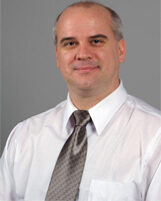According to the schedule, the second Ph.D. student will be in charge of the following tasks:
1) 1-41 Analysis of available ADC and DAC technologies
2) 1-42.Study and analyzis of the DRFS architecture
3) 1-45 Initial DRFS functionality and performance analysis
4) 2-21 Design of the prototype modulator and the DRFS up-converter
5) 2-22 Design of the DRFS down-converter and the software demodulator
6) 2-23 Study, analysis and design of the control aspects of DRFS
7) 2-25 Characterization and selection of the optimum operating point
8) 3-42 DRFS demonstration of both real RF siugnals and under software control
9) 3-44 Study and analyzis of the integration of generic RFU to SDA in bench tests
10) 4-32 Analysis and evaluation of sensitivity gains with SDA
11) 4-33 Evaluation of power consumption under various flight scenarios
12) 4-34 Estimation of reliability benefits from SDA
The objective of the work of this Ph.D. student is to develop a direct RF sampling receiver module to work in conjunction with the ISR platform instead of the commercial RFU.
During the first year, the Ph.D. student will focus on the development of the requirements of a direct RF sampling receiver. He will study and implement in simulation software candidate filters for the isolation and removal of phase noise. Preliminary work will focus on an initial design of the DRFS to replace the commercial RFU.
The Ph.D. student will focus, during the second year, on the implementation and test of the selected ant-aliansing filter candiates, the development and functionality testing of the DRFS.including the baseband modulator, down-converter, up converter and control interface. A short study of the upconverter acceptable non-linearity limits will be done.
During the third year, the Ph.D. student will be focused on the individual unit physical latyer testing including software control thereof. Aother focus of this Ph.D. student third year is the integration of the DRFS unit with the other SDA’s. A short assessment of the reliability of the DRFS unit will be contributed to the 3-26 overall reliability assessment. Considerable focus in the third year is anticipated to be spent on assisting the Master’s student looking after the WBR development.
![]()
